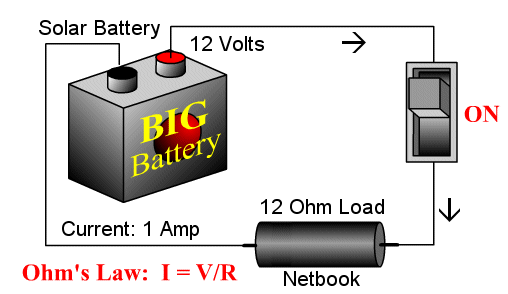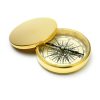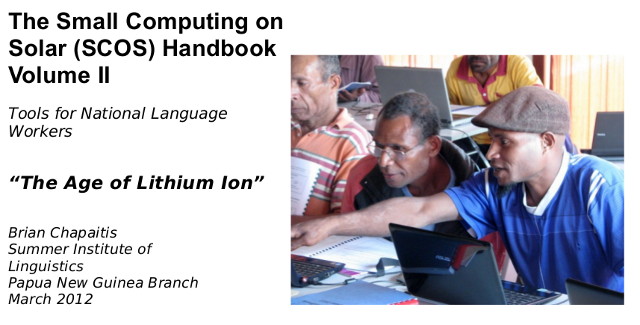Vol II of the SCOS Handbook is now out based on our research in Papua New Guinea testing small scale solar systems suitable to sustain netbook-class computers or notebooks that consume 8 to 10 watts while in use.
In "The Age of Lithium Ion" the Handbook discusses the latest in thin-film and affordable "roll-up" panels that are lightweight, and considers the advantages of the new LiFePo4 battery technology often called "LFP". This relatively safe chemistry is different than Lithium Cobalt batteries that are reported problematic by recent news media outlets.
LFP is considered very
environmentally friendly as well, compared to Lead Acid batteries, so
these are perfect for third-world contexts. LFP is amazingly
light weight and therefore easy to ship at reduced cost.
New Lithium-Ion Technology
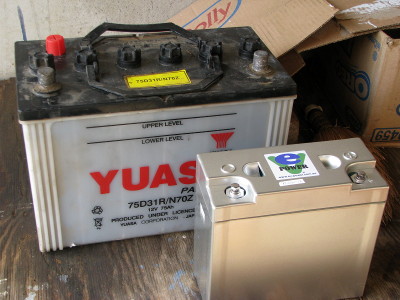 Although
LFP is the least energy dense of all the Lithium based chemstries, it
is still considerably lighter and more compact than traditional
Lead-Acid batteries. Here we see a 20 Ah LFP battery which is
around 1/3 the weight of the typical Lead Acid car battery that it can
replace (70 Ah is really only usable to 16 Ah solar cycles)
Although
LFP is the least energy dense of all the Lithium based chemstries, it
is still considerably lighter and more compact than traditional
Lead-Acid batteries. Here we see a 20 Ah LFP battery which is
around 1/3 the weight of the typical Lead Acid car battery that it can
replace (70 Ah is really only usable to 16 Ah solar cycles)
Download the SCOS Handbook Vol. II Here
If you are still using Lead-Acid
as the main battery in your solar system, then you should read the
orginal Vol I of the SCOS handbook. Lead-Acid chemistry is
extremely fragile for solar installations and very senstive to abuse of
any kind. If you are replacing your batteries too soon, then you
need to read this handbook, Vol I
Download the SCOS Handbook Vol. I Here
Solar Technologies
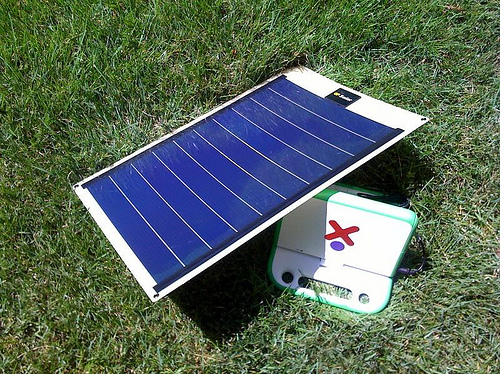 What
are the leading new solar technologies that are actually found in the
marketplace? Which suppliers of solar panels have actually
come
to the US$ 3 per watt price point?
What
are the leading new solar technologies that are actually found in the
marketplace? Which suppliers of solar panels have actually
come
to the US$ 3 per watt price point?
That are the advantages of the new Thin-Film technologies?
When is the Best Time to Work During the Day?
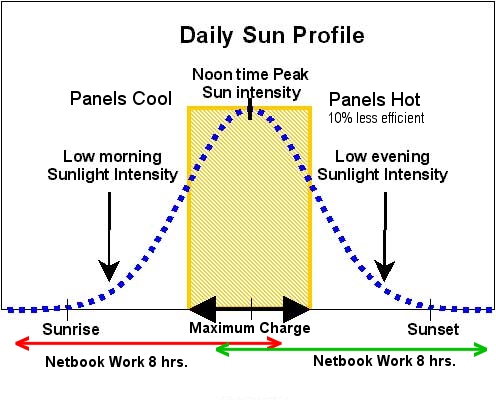 If
you are planning to use Lead-Acid battery technologies as your primary
energy storage device, then when is the best time to arrange your
workday, such that you minimize the battery size required, and help to
maintain the longest possible battery life?
If
you are planning to use Lead-Acid battery technologies as your primary
energy storage device, then when is the best time to arrange your
workday, such that you minimize the battery size required, and help to
maintain the longest possible battery life?
Netbook Characteristics
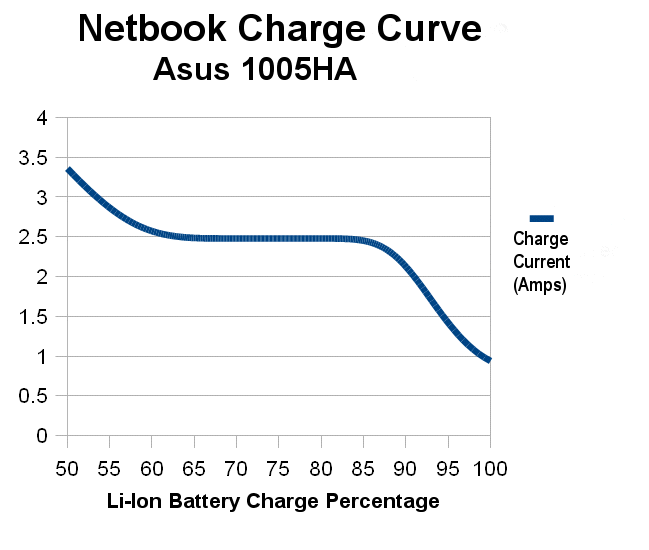 What
kind of charge curves can we expect from a typical netbook these days?
How large a solar controller would we expect to purchase?
What
kind of charge curves can we expect from a typical netbook these days?
How large a solar controller would we expect to purchase?
What is the "low voltage disconnect" all about and where
should it be set for typical modern AGM style batteries? Why are AGM style batteries so important in the Third-World,
such
that you would not want any other Lead-Acid battery technology?
Why is "depth of discharge" such an issue? Which
solar
controllers actually read the manufacturer's specs for modern lead acid
batteries and then try to maintain the best possible conditions for
long battery life?
So you fell asleep in High School Physics class? You
studied Ohm's Law, but never dreamed it had any practical relevance in
your life? If you are working with Photo-Voltaic systems, it
helps to understand Ohm's Law a bit better. Find a primer
here.
New Technologies
What
modern circuits hold promise to completely eliminate lead acid
batteries to sustain a modern netbook? Is there a
"boost-buck"
circuit that works for 3 amp loads?
Setting up the Best Solar Controller for a Netbook
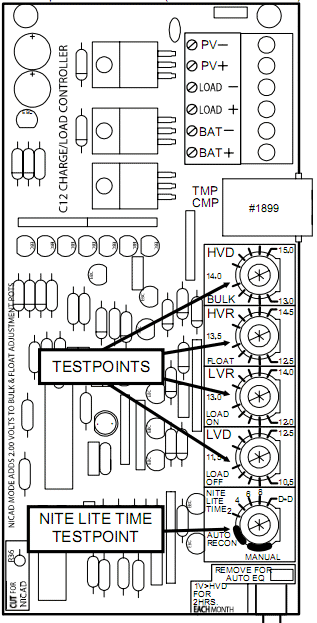 What's
the theory on the best way to preserve typical lead-acid batteries such
that they live long and happy lives?
What's
the theory on the best way to preserve typical lead-acid batteries such
that they live long and happy lives?
Depth of Discharge and Lead-Acid Battery Life
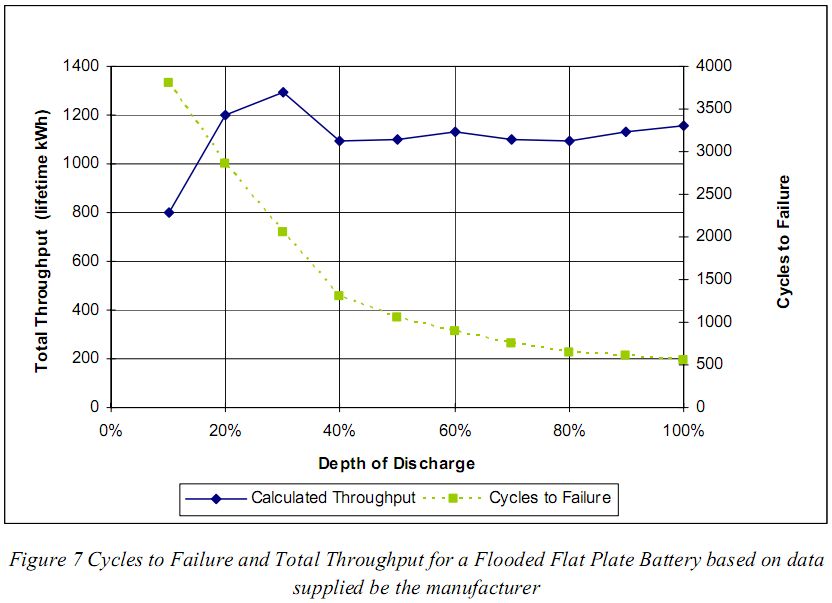
Ohm's Law and How it Relates to Solar Installations
